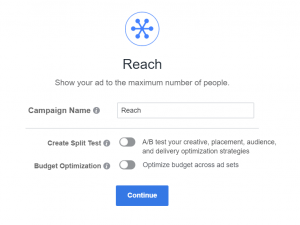The Formula For SEO Success
by Laurie Sullivan , Staff Writer @lauriesullivan, August 25, 2017
Too many businesses wing it when it comes to search engine optimization (SEO) because determining the cost structure and best services, along with finding the experts to support the strategy and key performance indicators can become overwhelming.
Now with comScore releasing its 2017 U.S. Mobile App Report — which estimates that Americans spend 57% of their time consuming digital media in apps, about the same as in 2016 — marketers also need to think about optimizing searches for apps and in apps.
But there is more. There are marketplaces like Amazon and large retailers such as Target and Walmart. Hitwise data published Thursday in Search Insider suggests that marketers need to think about these sites too.
Companies admittedly spend more on SEO services these days to optimize campaigns, but results from a joint survey with R2Integrated in 2016, surveying 500 marketing professionals, confirmed the biggest challenges for search marketing. The findings indicate that proving the return on investment, at 18%, finding a reliable agency, at 13%, and upfront costs, at 13%, are the greatest challenges.
A guide released by Clutch this week details major factors such as cost, pricing, services and best practices that companies need to examine and understand before signing on an agency or consultant. The guide also factors in thousands of vetted reviews of SEO companies, case studies provides by 13 top SEO service providers, and interviews with SEO experts.
There is no set method for hiring an SEO firm, but 19% of respondents mentioned that they have had a negative experience with a SEO firm before hiring their present provider.
Some 45% of choices were based on established relationships where the client either had an existing personal connection with the company or was referred by a friend or colleague. About 43% stated that company attributes factored into their decision, such as leadership, knowledge, staff experience, reporting and transparency, or customer service.
Some 15% wanted to use a local company, and 14% explicitly mentioned evaluating past performance, such as online reviews, references, case studies, and client lists.
About 13% mentioned culture fit or personality; 12% emphasized price or value as a deciding factor; and 11% cited the importance of company focus, as in the company specializes in the exact type of service that they needed.
Only 5% decided to work with the company after receiving a cold call or email pitch.
It’s pretty common that the cost for SEO services depends on the project’s complexity and demand, but it also can influence the monthly retainer fee. Most firms require a monthly retainer as a baseline price for their services, according to the guide. Some firms also price services according to project type or performance in addition to their monthly fees.
It also becomes equally important to evaluate a SEO firm beyond the cost structure, such as whether or not the firm shares its analytics reports and how often it communicates with clients. Transparency is critical. Ensure that the agency can optimize projects across mobile, web and apps.
Don’t forget about client reviews, market conditions and terms of service, as well as how they approach high-value link building, site performance, keywords optimization, HTML, and Google’s Accelerated Mobile Project pages.
Earlier this week, Google began rolling out new features in AMP for publishers. Google calls the feature Fast Fetch and it will bring additional advanced ad capabilities to AMP in the future, such as competitive exclusion and roadblocks for AMP pages, ability to refresh as at a configurable frequency, and support for enhancing ad results with targeted information to the ad server in real-time, according to Vamsee Jasti, product manager for the AMP project at Google.
MediaPost.com: Search Marketing Daily
(68)
Report Post




